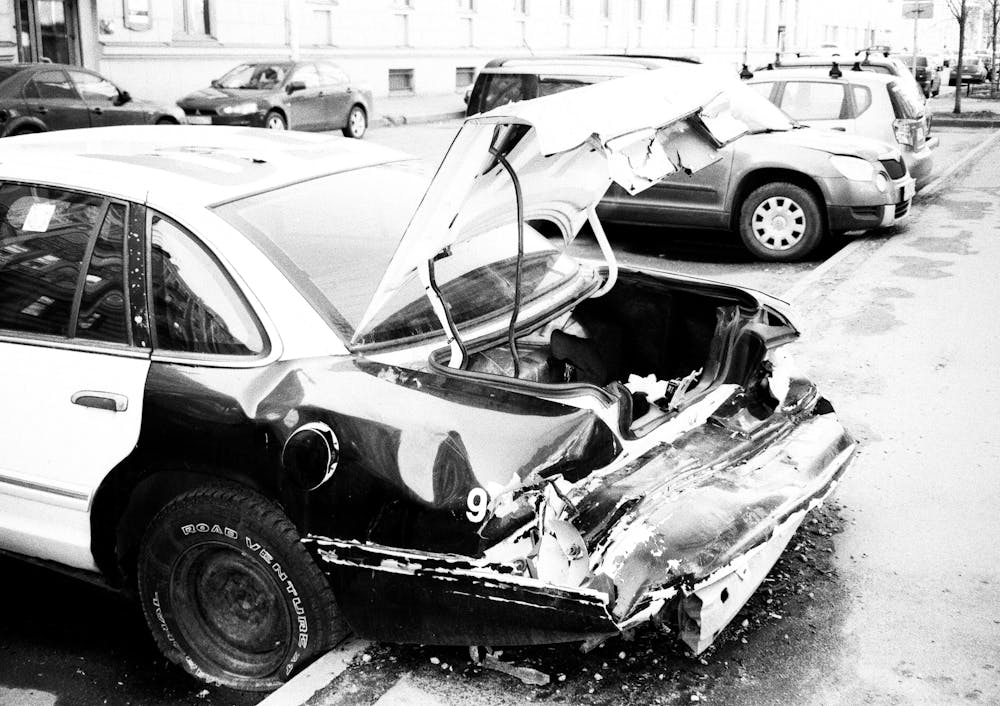You pay your insurance bill every month and do what you’re supposed to. You live in a city like Houston, where traffic is heavy and accidents happen often, so you take your coverage seriously. But when a crash actually happens, you might find out the hard way that your policy isn’t as solid as you thought.
From uncovered rental costs to medical bills that go way beyond your limit, the fine print can hit you just as hard as the accident itself. And if you’re like most drivers, you won’t find out what’s missing until you’re already dealing with the fallout.
In this article, you’ll learn about the hidden gaps in car insurance policies that can leave Houston drivers with surprise expenses and limited support.
Rental Car Costs After the Crash
Suddenly, you’re without a car. Whether it needs repairs or has been totaled, you assume your insurance will cover a rental. Sometimes it does. However, that depends entirely on whether you added rental reimbursement to your policy or any basic plans that don’t include it.
Even if it is covered, there’s often a daily cap and time limit. Meanwhile, repairs can drag on. Shops face backlogs, parts are delayed, and approvals take time. Once your coverage period ends, any extra rental days come out of your own pocket. If you rely on that vehicle for work or family obligations, the costs can stack up quickly.
Medical Bills Beyond What You Expect
Right after a crash, your main concern is getting medical help. But the bills keep coming. Emergency visits, imaging tests, follow-ups, prescriptions, rehab, and more. Your auto policy might include MedPay or personal injury protection, but those usually come with strict limits.
Once that amount is used up, you turn to your health insurance. If you have it, you still face deductibles or co-pays. If you don’t, you’re left covering everything yourself. To make matters worse, if you’re waiting for the other driver’s insurance to pay, the process can drag out. Your providers won’t wait. Collections start calling. The stress builds up while you’re still trying to recover.
Out-of-State Crashes and the Need for Local Legal Help
An accident outside your home state can get confusing fast. Each state has its own insurance rules. Some follow no-fault systems, while others have strict conditions for injury claims. If you’re unfamiliar with the laws where the crash happened, it’s easy to make a costly mistake.
That’s why having legal help is so important in these situations. For example, if the accident happens in Texas, working with a Houston auto accident attorney can make things easier. They understand how local insurers work, what Texas laws require, and how to protect your rights from the start.
Whether you’re dealing with unclear fault, delays in your claim, or serious injuries, having the right local support can help you avoid missteps and get the compensation you actually deserve.
Liability Coverage That’s Too Low
Maybe you followed state law and bought the minimum required liability coverage. That seems responsible. But if you cause a major crash and someone else is seriously injured, those minimum limits won’t go very far.
Hospital stays, surgeries, rehab, and long-term treatment cost much more than most minimum policies will cover. Once your policy limit is used up, you are personally responsible for the rest. That could mean using your savings, selling assets, or even having wages garnished. It’s a harsh reality that many only learn when it’s already happening.
What Happens When the Other Driver Is Uninsured?
It’s easy to assume everyone else on the road has insurance. Sadly, that’s not always true. Some drivers have no coverage at all. Others have just the legal minimum, which might not cover your full damages.
If you’re hit by one of them and you don’t have uninsured or underinsured motorist protection, the costs land on you. That includes medical bills, car repairs, lost wages, and more. Suing the other driver rarely helps because they usually don’t have the assets to pay what you’re owed. Without the right coverage, even a crash that wasn’t your fault can become your financial nightmare.
Emotional Trauma Doesn’t Fit in a Claim Form
Physical injuries are easy to see. But what about the emotional toll? After a crash, some people can’t sleep. Others avoid driving or relive the moment every time they get in a car. These symptoms are real and often last longer than the bruises.
Unfortunately, insurance companies rarely take emotional trauma seriously unless you have documented treatment. That usually means therapy or counseling, which may not be covered under your plan. Without a strong advocate or specific documentation, this side of your recovery is often ignored during settlement discussions.
Wrapping It Up
Insurance gives you a sense of safety, but the fine print often tells a different story. After a car accident, the last thing you want is to be blindsided by uncovered costs or unexpected responsibilities. Knowing where the gaps are allows you to fix them now, rather than facing tough surprises later. Take a few minutes to look over your policy. Ask questions. Consider whether what you have is truly enough. A small adjustment today can make a big difference when it really counts.





